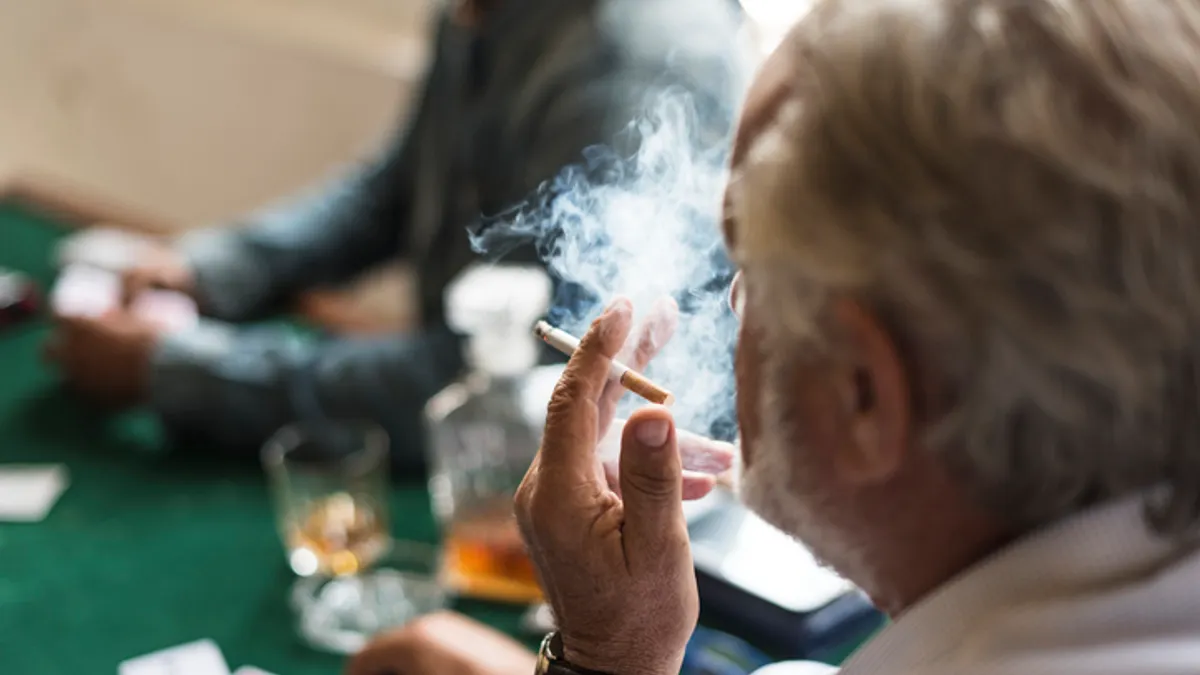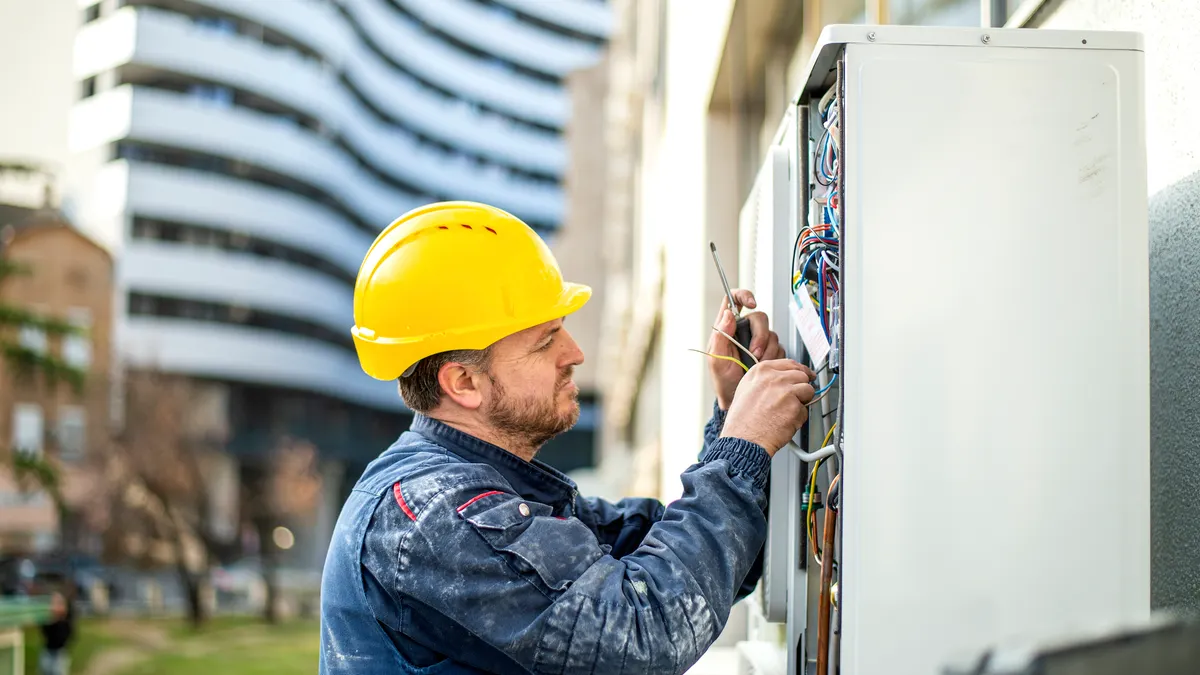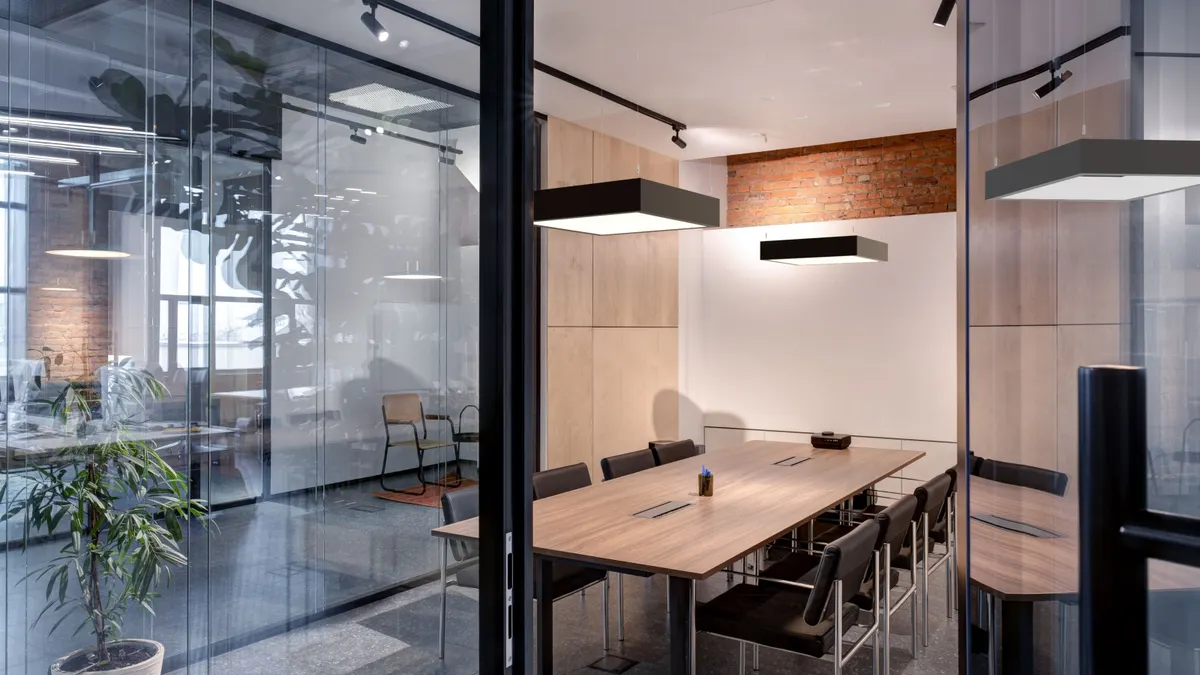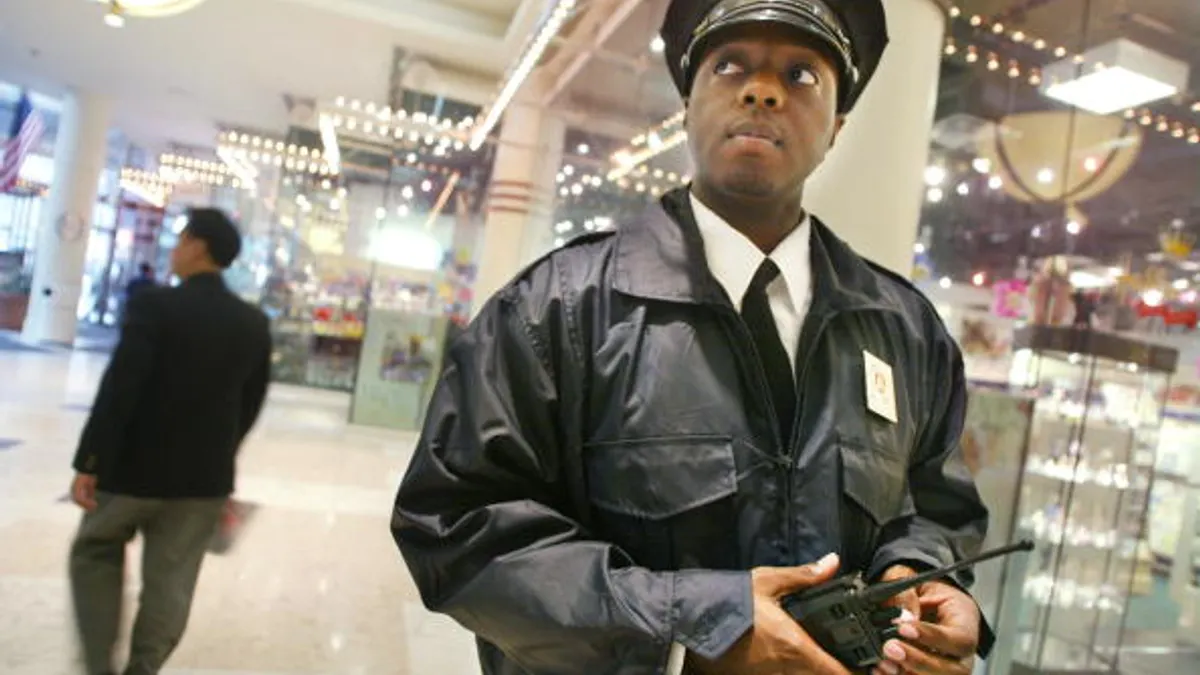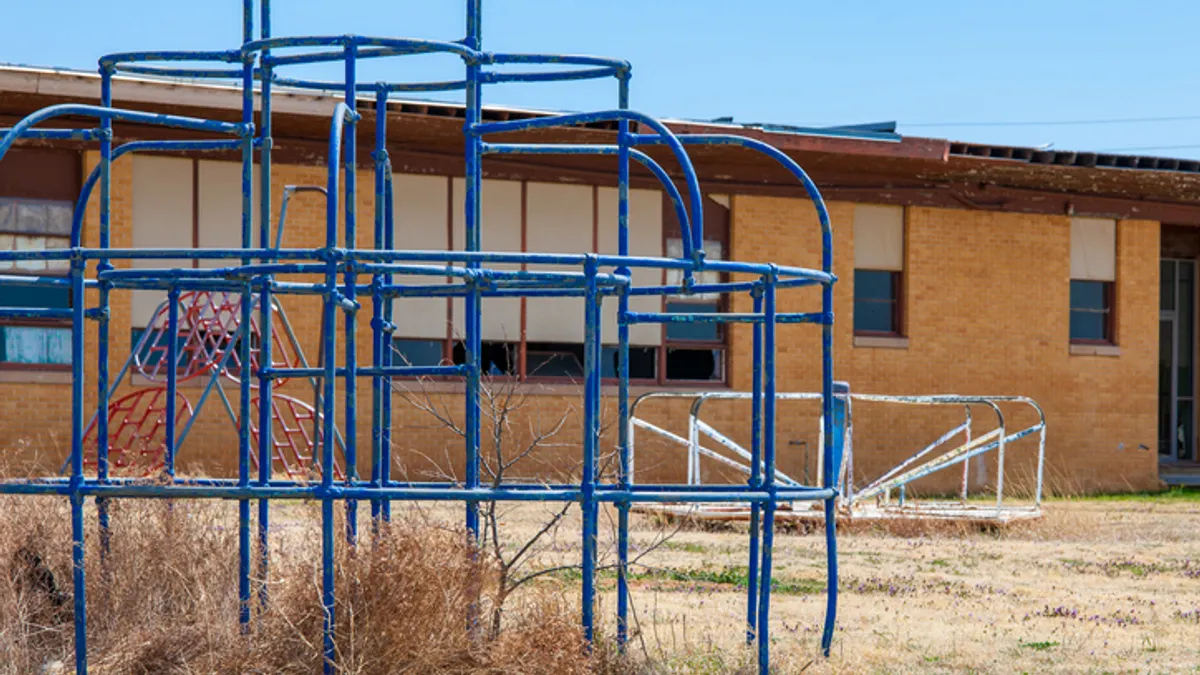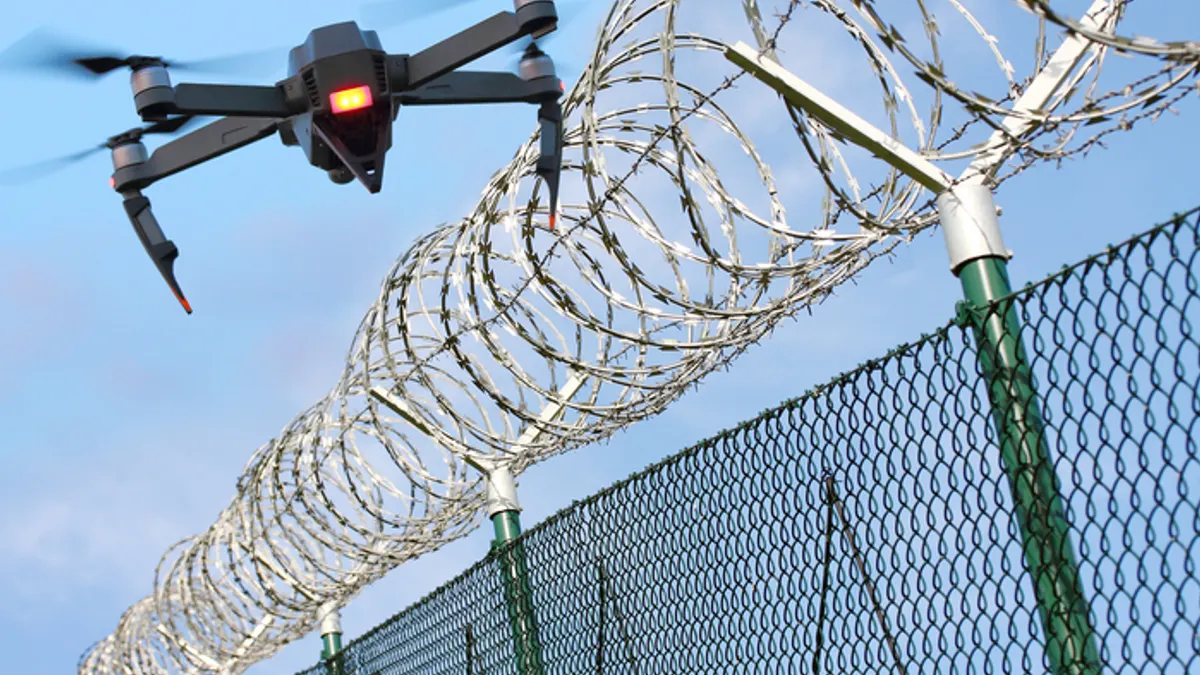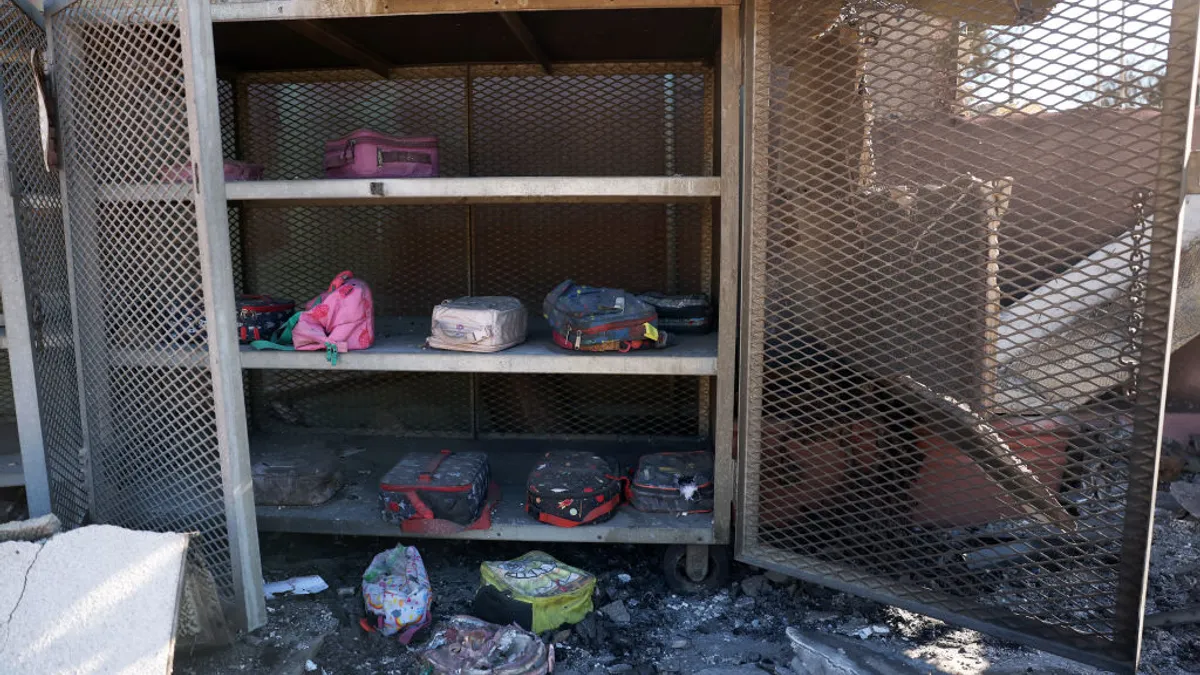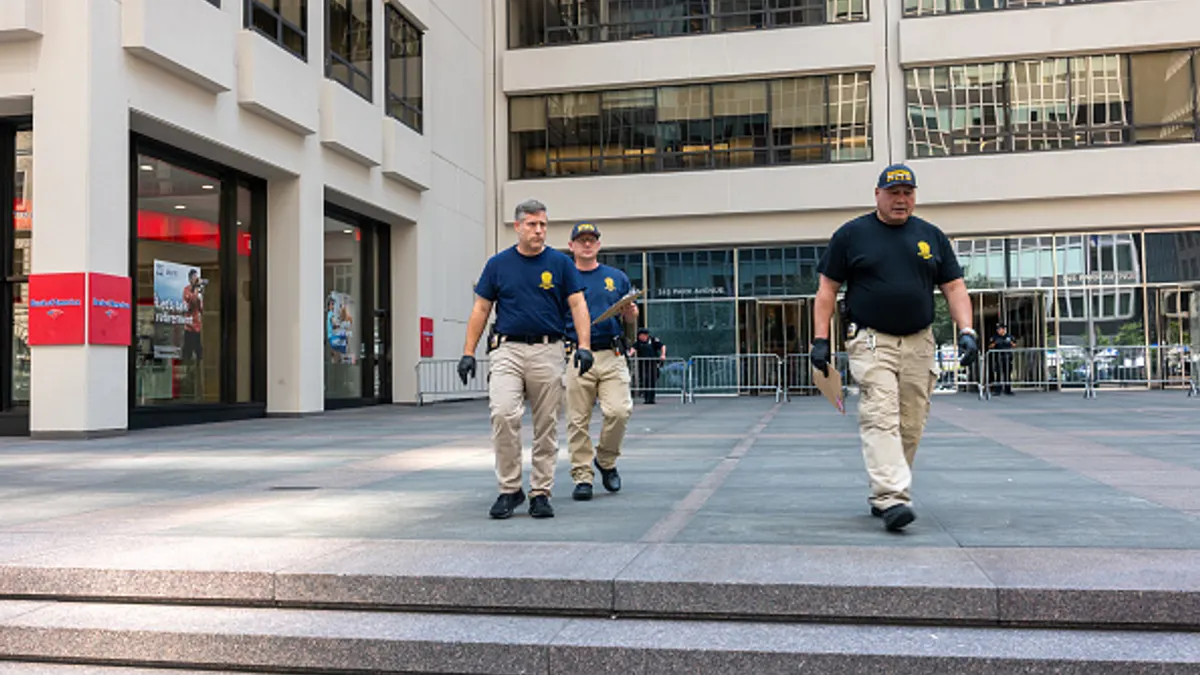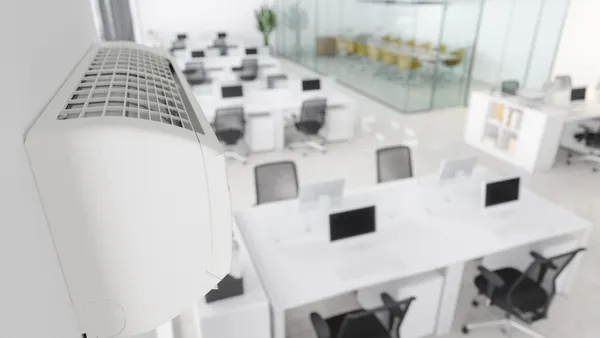Some of the last holdouts to allow indoor smoking – casinos – are under pressure as an advocacy organization takes a page from the ESG playbook and uses shareholder proxy voting to put the issue on the table.
“Last year we got 20% of the investor vote,” Cynthia Hallett, president and CEO of American Nonsmokers’ Rights Foundation, told Facilities Dive. “It illustrates that investors are interested in finding out from companies what the impact will be of continuing to engage in what I call an antiquated business practice.”
ANRF and Trinity Health, a nonprofit provider, joined forces a few years ago to become shareholders in a handful of casino companies – Wynn Resorts, Boyd Gaming, Caesars Entertainment and Penn Entertainment – to give them standing to submit proposals to the companies for consideration at their annual shareholder meetings, Hallett said. This is the organizations’ second proxy season and Hallett is hopeful that investors by the end of May will send a signal that casinos, like other workplaces, owe their employees a smoke-free environment.
“People don’t think of casinos as workplaces, where workers deserve protections … but on the gaming floor workers are exposed,” she said.
The groups aren’t asking for an up or down vote on smoking; they’re asking the companies to study the financial impact on their business of allowing smoking to continue.
“In terms of the ventilation, HVAC alone, the power to run the system at a higher rate so you have more air exchanges, costs more, and that only deals with comfort and odor,” she said. “Ventilation can’t control for all the carcinogens and toxins in the air, so maybe you can’t smell it. It also requires using the best filters, if you are willing to invest in those, and to change them more often.”
Cleaning costs tend to be more, too, she said. “The secondhand smoke gets trapped in anything fabric – carpet, table felt, upholstery, curtains,” she said. “If there’s a burn hole in a table felt, that has to be changed. And uniforms require more frequent cleaning or replacement.”
Health insurance costs tend to be higher as well, because employees exposed to smoke use medical services more, and there’s more absenteeism and higher turnover, leading to higher recruiting and training costs, she said.
“These are skilled employees” at casinos, she said. “If they’re a table game dealer, they have to learn the game, manage money, and keep their eyes open for cheating. So, if someone is either getting sick in the workplace or just dissatisfied by being exposed to secondhand smoke, knowing there are other workplaces that are smoke free, you have an employee retention problem and also an employee recruitment problem.”
The groups’ use of proxy voting to elevate the issue of nonsmokers’ rights follows the path that supporters of other social issues have taken in recent years. Last year, for example, advocates put forward more than 850 proposals concerning environmental, social and governance (ESG) issues during the proxy season, according to an analysis by Principles for Responsible Investment.
Business impact
Casinos have taken the position that business will drop by a third if they ban smoking because gamblers are accustomed to smoking while playing. But the COVID-19 pandemic gave casinos a chance to test that hypothesis and it didn't bear out, Hallett said. With a few exceptions, casinos banned smoking during the pandemic and a number of them, particularly among tribal casinos, maintained the no-smoking policy after restrictions were lifted. In many of these cases, research showed, business remained the same or went up, she said.
“That counters the myth that we're going to lose business,” she said.
Hallett pointed to Foxwoods and Mohegan Sun in Connecticut and the Parx Casino in Philadelphia as examples of casinos that saw their business increase after maintaining a post-COVID smoke-free environment.
“Employees at the Parx Casino loved it and people still came,” she said. “It’s the number one revenue generator [among casinos] in Pennsylvania and they’ve expanded to another property that will open smoke-free. That’s a good sign smoke-free air is good for business.”
Roughly half the states in the United States have across-the-board prohibitions on indoor smoking; in the other states, there’s flexibility to allow indoor smoking in some settings, typically casinos, bars and restaurants and in some event venues.
Nevada and New Jersey, with their legacy gaming industries, are among the holdouts that allow smoking in casinos. The UAW, which represents some casino workers, joined with a casino employee group last year to file a smoke-free workplace lawsuit in New Jersey. The employee group, Casino Employees Against Smoking Effects was created in 2021 after some casinos returned to their pre-pandemic policy of allowing smoking.
“Employees loved it when [casinos] went smoke-free during COVID,” Hallett said.
As the casino companies meet over the next month for their annual meetings, the hope is that they’ll vote to at least see if their policies are leading to operating costs that are higher than they need to be.
“We’re looking at this from a business, financial and management angle,” Hallett said. “There’s the human element, but there’s also the cost and financial benefit of smoke-free workplaces … from things like saving on cleaning costs and other business operating expenses.”



